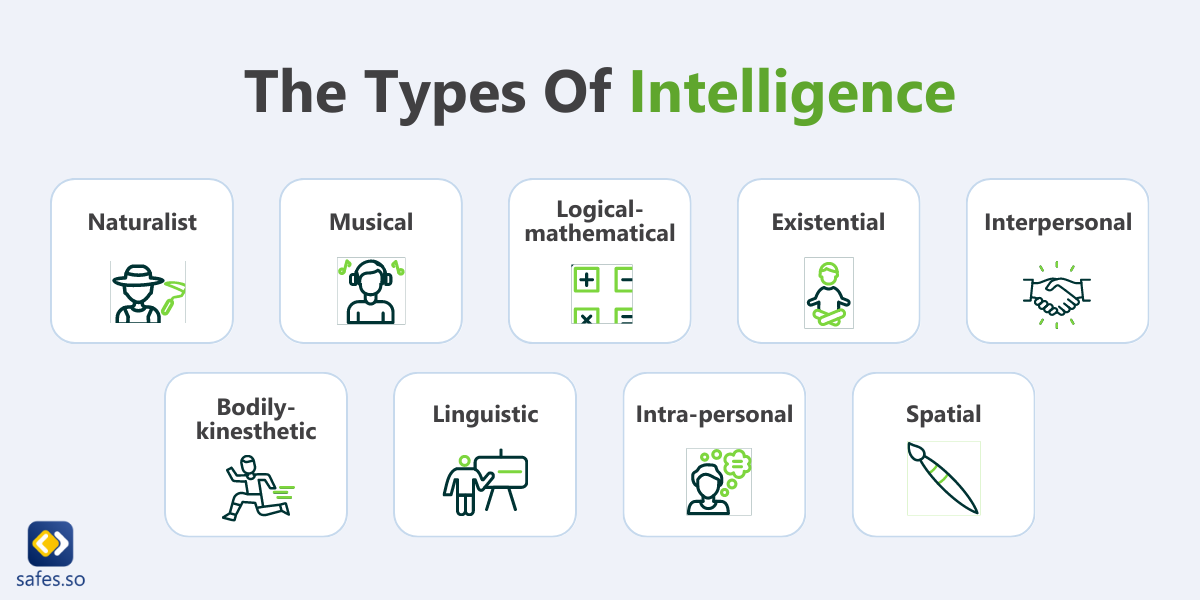IQ tests have been a staple of education for over a century. These tests are designed to measure an individual’s cognitive abilities and intellectual potential. They have been used in schools for many years, with the idea that they can help educators identify students who may need additional support or who may require more challenging coursework. However, despite their widespread use, IQ tests are flawed measures of intelligence that can lead to unfair treatment of certain students. In this blog post, we will explore why IQ tests are flawed and how they can impact student success. We will also introduce alternatives to IQ tests that can offer a more reliable and fair assessment of students’ aptitudes.
The Potential Benefits of IQ Tests in Schools
According to a study published in Frontiers in Psychology, IQ tests can be a predictor of academic success. As mentioned in the introduction of this blog post, IQ tests can help identify students who may need additional support or advanced coursework. For example, if a student scores exceptionally high on an IQ test, they may be a good candidate for advanced coursework or gifted programs. Similarly, if a student scores low on an IQ test, they may require additional support to help them succeed in their academic pursuits. However, it is essential to note that how accurate IQ tests are as a measure of intelligence is still a topic of debate. While they can be helpful in identifying cognitive abilities, they are not always an accurate reflection of a student’s overall potential or abilities.
The Potential Limitations of IQ Tests in Schools
There are concerns about whether IQ tests are valid measures of intelligence, particularly for minority and disadvantaged students. A body of Research conducted at the University of Connecticut has shown that IQ tests can be biased toward certain cultural groups and may not accurately reflect the cognitive abilities of students from different backgrounds. Additionally, IQ tests are limited in their ability to assess non-cognitive skills, such as creativity and emotional intelligence.
By solely relying on IQ test results to label students, we risk overlooking their full range of abilities and potential. This can lead to negative effects, such as low self-esteem, a lack of motivation, and a decreased sense of academic and personal success. Therefore, it is essential to acknowledge the limitations of IQ tests and to consider a range of factors when assessing a student’s abilities and potential.

IQ Tests Are Culturally Biased
IQ tests can be culturally biased because they rely on questions that may reflect certain cultural knowledge or experiences. For example, a question that asks about a particular type of food or sport may disadvantage students who are not familiar with that particular cultural reference. Additionally, some questions may be language-specific, which can disadvantage non-native speakers.
Studies have shown that certain minority groups tend to score lower on IQ tests than other groups, which suggests that cultural bias may play a role in test results. Questions that rely heavily on verbal reasoning, for example, may be culturally biased against students who come from cultures that value nonverbal communication.
The impact of cultural bias on students can be significant, as it can lead to unfair treatment of certain groups of students and may reinforce stereotypes about particular cultures or ethnicities. It is important to acknowledge the potential for cultural bias in IQ tests and to ensure that all students are given a fair and equal opportunity to demonstrate their abilities.
IQ Tests Do Not Measure all Types of Intelligence
IQ tests are designed to measure cognitive abilities such as problem-solving, spatial reasoning, and memory. These tests focus on assessing an individual’s reasoning ability and logical thinking. However, there are many other types of intelligence that are not measured by IQ tests, such as emotional intelligence, creativity, and social intelligence.
Emotional intelligence, for example, is the ability to understand and manage one’s own emotions, as well as the emotions of others. Creativity is the ability to think outside the box and come up with new and innovative ideas. Social intelligence is the ability to navigate social situations and understand the dynamics of human relationships.
By measuring only certain types of intelligence, we risk overlooking the strengths and abilities of students who excel in other areas. This can lead to unfair treatment and limitations of a narrow view of intelligence. It is important to acknowledge and value a wide range of intelligences in order to create a more inclusive and diverse education system.

Read these articles on our blog to learn more about the different types of intelligence according to Howard Gardner:
- How Teachers Can Integrate Naturalist Intelligence into Education
- Empowering Children: Intrapersonal Intelligence Careers
- Fostering Interpersonal Intelligence: Parenting Tips & Examples
- How Bodily Kinesthetic Activities Benefit Children’s Development
- Is Your Child Musically intelligent? Signs and Strategies
- Screen Time or STEM Time: Logical-Mathematical Intelligence in the Digital Age
- Examples of Spatial Intelligence That Benefits Your Child
IQ Tests Do Not Account for External Factors
There are many external factors that can affect IQ test results, including test anxiety, hunger, fatigue, illness, and socioeconomic status. Test anxiety, for example, can lead to a negative impact on performance, as it can cause students to feel anxious and stressed. Hunger, fatigue, and illness can also impact performance by making it difficult for students to focus and concentrate.
Additionally, socioeconomic status can play a role in test results, as students from higher-income families may have access to more resources and opportunities that can improve their performance. Studies have shown that students from higher-income families tend to score higher on IQ tests than students from lower-income families.
External factors can also lead to overestimation or underestimation of abilities, which can result in inaccurate test results. For example, a student who performs poorly on a test due to test anxiety may be underestimated, while a student who performs well due to access to resources may be overestimated. It is important to consider external factors when interpreting IQ test results and to recognize that these factors can impact test performance in significant ways.
IQ Tests Are Not Always Reliable
While IQ tests are commonly used to measure cognitive abilities, their reliability is subject to several factors. For instance, test-taking conditions, test quality, and scoring methods can affect the results of IQ tests. Moreover, IQ test results may also fluctuate over time, particularly during childhood and adolescence. Some experts argue that the concept of intelligence is too complex to be accurately measured by a single test. Therefore, the reliability of IQ tests is uncertain, and it is important to interpret results with caution and consider multiple factors when assessing an individual’s abilities and potential.
IQ Tests Can Have Long-Term Consequences for Students
One of the problems with IQ tests is that their scores are often used to make decisions about students’ academic placement. For instance, students who score high on IQ tests may be placed in advanced classes, while those who score low may be placed in remedial classes. These decisions can have long-lasting effects on students’ educational opportunities and future prospects.
Furthermore, students who are unfairly disadvantaged by IQ test scores may miss out on opportunities to develop their abilities and reach their full potential. Therefore, the use of IQ tests in making academic decisions should be approached with caution, and a range of factors should be considered to ensure that all students are given a fair and equal opportunity to succeed.
Alternative Methods of Measuring Intelligence
In psychology, intelligence tests are often used as a measure of cognitive abilities, but there are alternative methods of measuring intelligence that can provide a more comprehensive picture of a student’s abilities. These alternative methods include portfolio assessments, project-based assessments, and assessments that focus on multiple intelligences. These methods can provide a more accurate and fair assessment of students’ abilities and can also provide valuable feedback to help students improve. By using a range of assessment methods, educators can gain a better understanding of each student’s unique abilities and potential and can tailor instruction to meet their individual needs.
How Can Safes Help Nurture Your Child’s Intelligence?
The Safes parental control app can help nurture children’s intelligence by allowing parents to control their children’s access to websites, apps, and content, as well as how much screen time they get. By setting limits and restrictions, parents can ensure that their children are not exposed to inappropriate content and are spending their time online in a productive and educational way. With Safes, parents can help their children develop their cognitive abilities, creativity, and emotional intelligence by providing a safe and controlled environment for learning and growth.
The app is available for both Android and iOS devices. Instructions on how to use Safes can be found on these pages:
- Windows parental controls
- Macbook parental controls
- Parental controls on Android
- iPhone parental controls
Take control of your child’s online safety today with Safes and start with a free trial to explore its full range of features!
Conclusion
In conclusion, while IQ tests have long been used as a measure of intelligence, they are not without their limitations. Cultural bias, external factors, and a narrow focus on certain types of intelligence can all impact the reliability and validity of IQ test results.
Additionally, decisions made based on IQ test scores can have long-lasting effects on students’ educational opportunities and future prospects. However, there are alternative methods of measuring intelligence, including portfolio assessments and project-based assessments, that can provide a more comprehensive and accurate picture of a student’s abilities.
Furthermore, parental control apps like Safes can help nurture children’s intelligence in a variety of areas by enabling parents to control the content their children are exposed to and how much screen time they get.
By acknowledging the limitations of IQ tests and embracing alternative methods of assessment, we can create a more inclusive and diverse education system that values all forms of intelligence and provides students with the opportunity to reach their full potential.




